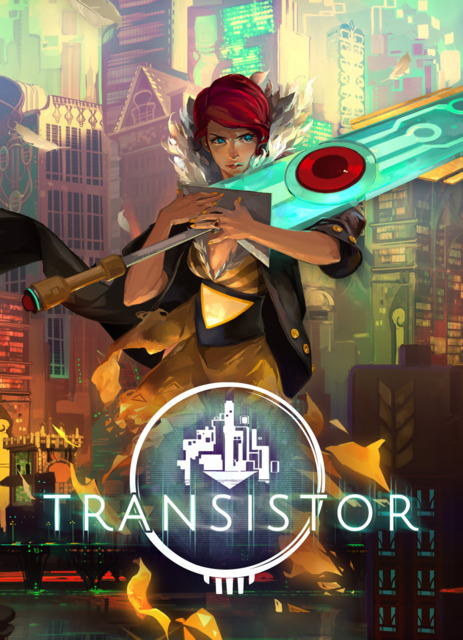Challenge to Conquer, Lore to Explore
Video Review: https://www.youtube.com/watch?v=c0GQKJJnUHM
Script from video:
Transistor is a game that i was really worried about. It’s made by supergiant games, the same studio that created bastion. Bastion was one of those games i had every reason to like, but something didn’t click. I liked the premise, the presentation, and the design (on paper at least) but i couldn’t stand playing the game. My experience with bastion meant that i couldn’t be sure how transistor would pan out until i tried it myself. Transistor has many similarities to bastion, but the biggest difference is that i actually enjoy playing it.
The premise
In transistor you play as red in a computerized world. For the first portion of the game, that’s all you’ll really know for sure, as transistor’s story is consumed through osmosis rather than a clear-cut tale being told. You’ll mainly be exploring this world via news kiosks, casual dialog with red’s accomplice, and exploring the city first hand. When you’re not looking around you’ll be fighting enemies using different abilities (or “functions”) to combat your foes.
Transistor’s hook on combat is the turn system. At anytime during combat you can press a button to initiate turn, which is a time-stopped planning mechanic. You can queue up actions and once your meter is expired or you choose to end your turn, they’ll be played out in real-time within a second. When you’re not in turn the combat is realtime. Real time fighting is doable but it’s much more difficult to find success as your animations have long wind-ups and even the most basic strategies require some form of planning. You’ll unlock about a dozen different abilities over the course of the game and these functions can be mixed and matched to your play style.
The good
Transistor’s combat is easily the best part of the game. At the onset you augment all your functions to act as core abilities, but the depth in transistor comes with the choice to upgrade abilities or use passive functions. For example, an ability called “help,” will spawn a friendly ai to help you in fights, but using another function to upgrade “help,” will spawn two friendly ais. Another function used on help will add a stun to your friendly’s attacks, and etc. These dozen functions can be mixed in as many variations as you can think of, although i think the overall number of combinations is somewhere in the hundreds of variables.
Discovering new combinations is always rewarding. In my experience i consistently felt like i had found the ultimate combination to use for the entire game, only to experiment and find another approach that was just as good, if not better.
Transistor’s design really wants you experiment. Each function you unlock is tied to a character in the world. For using the function at all you get a little tidbit about that person, but each time you use the function in a new way it unlocks more information about that character. I really think this bit of design is the most ingenious part of the entire game. The player’s desire to learn more about the mechanics is directly tied to learning more about the story, and vice versa. It’s a perfect example of gameplay and story going hand and hand.
Transistor’s story is definitely worth exploring, which is good, since you’ll have to explore pretty rigorously to figure out the world around you. Transistor isn’t a game that holds your hand. There isn’t a single tutorial in the game and most of the information you learn is from inference or careful listening. Every line of dialog and bit of text has a reason for existing. It’s difficult to pick up everything in one playthrough, and sure enough, after finishing transistor for the first time… i still wasn’t really sure what happened. The game allows a new game plus option called recursion, which seems mandatory in order to fully comprehend the story of the game. I may not have figured out everything on my own, but the process of exploration was enjoyable.
The bad
However lack of hand-holding can sometimes be a bad thing. As i mentioned before, i finished the game and didn’t really understand what happened. That can be an appealing aspect to some people, but i just felt disappointed. For my entire playthrough i felt as if i was getting closer and closer to understanding it all, only for it to abruptly end and confirm i didn’t know much of anything. This blow is lessened since recursion is so rewarding to playthrough, but it feels like the drama of the ending and final encounter were completely lost on me since i didn’t understand what was happening. Of course there’s an argument to be made that i’m just an idiot who didn’t get it, but i may not be the only one.
Final word
Transistor has everything that i like about games. There’s not a single facet that seems overlooked. It looks great, its story is intriguing, it sounds beautiful, and it’s rewarding to play. Transistor’s short length may put-off cash-strapped gamers looking for value, but the game’s mechanical complexity and mysterious world ensures an abundance of challenge to be conquered and lore to consume.
